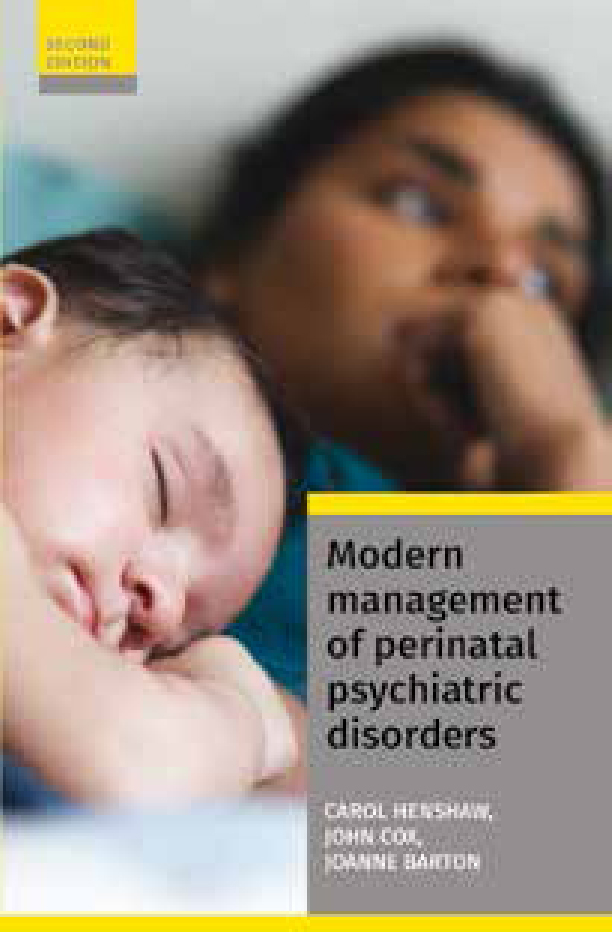Modern Management of Perinatal Psychiatric Disorders

This month sees two readers give their verdict on a new release from the Royal College of Psychiatrists on ways to manage perinatal psychiatric disorders.
Leslie Briscoe:
Henshaw, Cox and Barton's 2017 book is essential or anyone who cares for women with perinatal mental health problems. All aspects of the maternal journey have been carefully presented around a time line that includes antenatal, intranatal, postnatal and longer term health. However, the book goes further by incorporating the complexity for women whose lives involve multiple outcomes related to partners, neonates, and adolescents.
The layout leads the reader through key concepts related to perinatal mental health in a logical way. Comprehensive and informative referencing assists the reader to understand perinatal mental health conditions, their clinical assessment and potential interventions. Knowledge is contextualised by relating information concerning service provision.
Further reading and reference to interesting and informative resources draw the reader's attention to additional information that could support their growing knowledge base. Of particular interest is how the authors take time to identify gaps in research, education, practice and policy, which will help to support those who study for higher qualifications related to future research.
Sylvia Murphy Tighe
The second edition of Modern Management of Perinatal Psychiatric Disorders is a comprehensive resource for clinicians, students and academics working with women affected by mental health issues during the perinatal period.
This edition has been updated to reflect practice, recent evidence and new clinical guidelines. Important perinatal mental health issues are dealt with comprehensively by internationally respected experts and the scope is wide ranging.
This book contains a rich and impressive collection of evidence-based information for the novice student, the expert practitioner and the academic interested in the area of perinatal psychiatry. A welcome addition is the inclusion of chapters on substance misuse, working with multi-ethnic communities and service provision. The breadth and depth of evidence contained in this book is extensive, ensuring that it provides a unique contribution for practitioners at the coal face.
The authors have skilfully collated and updated an array of evidence on perinatal psychiatry in a readable and accessible manner.
A strength of this book is its comprehensive examination of the complexities of perinatal psychiatry, making it a valuable resource within many maternity, primary health care, mental health and psychiatry departments.
If I had one wish it would be to see a move away from the use of biomedical language such as ‘psychiatric disorders’ or ‘disturbed mothers’. I believe a more nuanced and sensitive use of language is required to destigmatise perinatal mental health. The inclusion of interdisciplinary research from the fields of midwifery, nursing, psychology and counselling would also be beneficial, as interdisciplinary working is pivotal to service provision and supporting women impacted by mental health issues.
As a midwifery educator and researcher, I found this book invaluable. The second edition has a contemporary focus as it includes important areas such as substance misuse, physical treatments during pregnancy and lactation. It is an authoritative and evidence based book that will be a great resource for midwives, public health nurses, health visitors, family doctors, psychologists, social workers and psychiatrists. I would highly recommend this book to students, academics, researchers and practitioners working to support women and families during the perinatal period.

